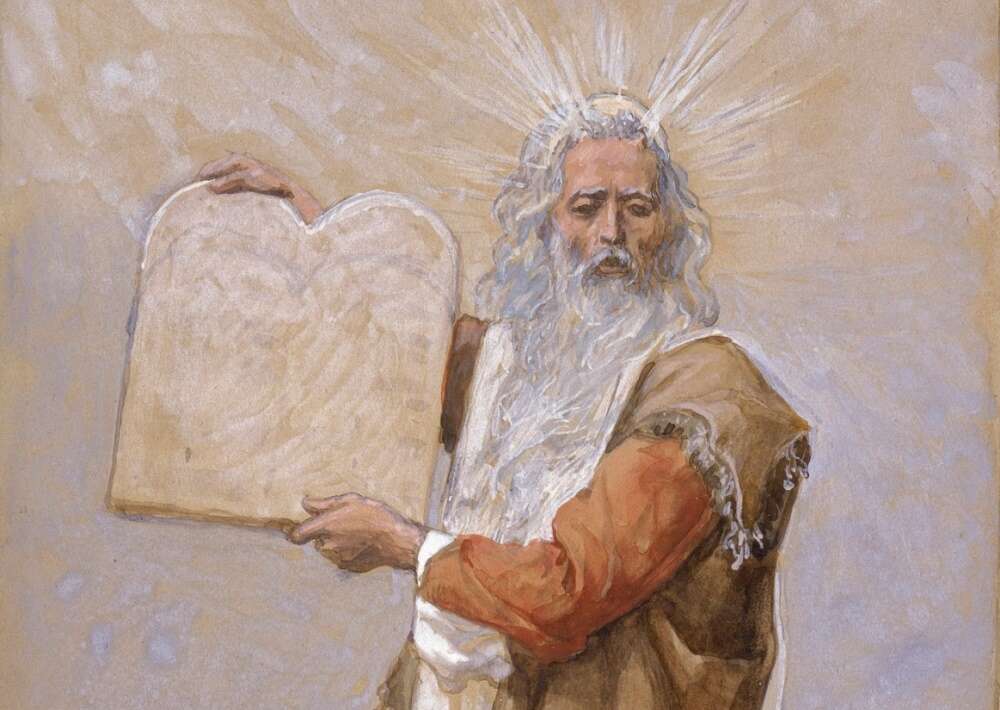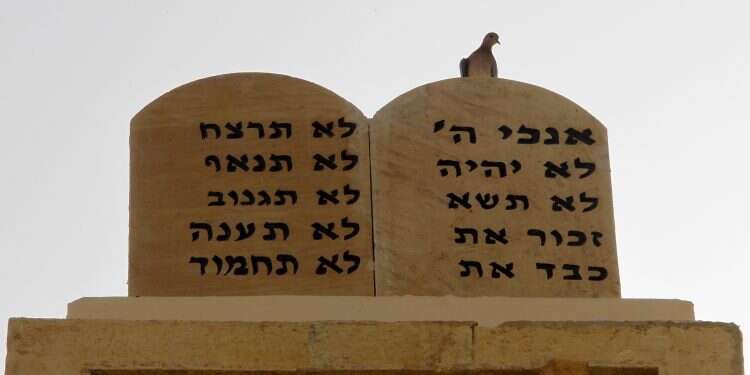1.
The counting of the Omer is drawing to a close and the festival of Shavuot is drawing closer. In the days when the Temple stood on the Mount, we marked the harvest. "…and the Feast of the Harvest, of the first fruits of your work, of what you sow in the field." (Exodus, 23:16) The wheat harvest on Shavuot and the barley harvest on Passover. Our sages saw this as symbolic: barley is considered animal food, while wheat is for human nourishment. On Passover, the national body was born, and on Shavuot, with the giving of the Torah, it received a soul. Nevertheless, the soul, for its part, needs the body as its dwelling, and the spirit develops on the foundation of matter.
The Bible also marked this date as the festival of the first fruits. In the Temple, we would sacrifice the first fruits of the earth, that is, we would elevate agriculture from its economic value to a spiritual value. We would plough the homeland and sow it, that is, we would fertilize it until it gave its fruits and connected us to our roots and identity. A person bringing first fruits to the Temple would read verses that contain the essence of the beginning of our people: "A fugitive Aramean was my father, and he went down into Egypt, and sojourned there, few in number; and he became there a nation, great, mighty, and populous. (Deuteronomy 26:5; Our third forefather Jacob who had fled to Aram, to his uncle, Laban, went down to Egypt in the wake of his son Joseph, when he was few in number and there he became a great people.)

"The Egyptians dealt harshly with us and oppressed us; they imposed heavy labor upon us. We cried to the Lord, the God of our ancestors, and the Lord heard our plea and saw our plight, our misery, and our oppression. The Lord freed us from Egypt by a mighty hand, by an outstretched arm and awesome power, and by signs and portents, bringing us to this place and giving us this land, a land flowing with milk and honey. Wherefore I now bring the first fruits of the soil which You, the Lord, have given me." (Deuteronomy 26, 6-10) The giving of the Torah is not mentioned in the bikkurim (the giving of the first fruits), for the purpose of the Exodus from Egypt was to enter the land in order to realize the great ideas of the Law of Moses, not in the desert or as individuals, but as a nation living in an independent state and leading a political and economic life in the light of these eternal ideas.
2.
Following is a description of how the first fruits were brought to the Second Temple as presented in the Mishnah (Tractate Bikkurim): "How do they bring up the first fruits [to Jerusalem]? All the cities in the region (ma'amad) gather together to the main city of the region and sleep overnight on the streets of the city rather than going into the houses. They rise early in the morning and the appointed supervisor says "Rise! Let us go up to Zion, to the Lord, our God.
"Those who lived near [Jerusalem] would bring fresh figs and grapes, while those who lived far away would bring dried figs and raisins. An ox would go in front of them, his horns bedecked with gold and with an olive crown on its head. The flute would play before them until they would draw close to Jerusalem.
"When they drew close to Jerusalem they would send messengers in advance, and they would adorn their bikkurim. The governors and chiefs and treasurers [of the Temple] would go out to greet them, and according to the rank of the entrants they would go forth. All the skilled artisans of Jerusalem would stand up before them and greet them saying, 'Our brothers, men of such and such a place, we welcome you in peace.'
"The flute would play before them, until they reached the Temple Mount. When they reached the Temple Mount even King Agrippa would take the basket and place it on his shoulder and walk as far as the Temple Court. When he got to the Temple Court, the Levites would sing the song: 'I will extol You, O Lord, for You have raised me up, and You have not let my enemies rejoice over me' (Psalms 30:2).
"While the basket was still on his shoulder he recites from: 'I acknowledge this day before the Lord your God that I have entered the land that the Lord swore to our fathers to assign us' (Deuteronomy 26:3) until he completes the passage. Rabbi Judah said: until [he reaches] 'My father was a fugitive Aramean.' When he reaches, 'My father was a fugitive Aramean,' he takes the basket off his shoulder and holds it by its edges, and the priest places his hand beneath it and waves it. He then recites from 'My father was a fugitive Aramean' until he completes the entire passage. He then deposits the basket by the side of the altar, bows and departs."
3.
This week, a wise and beautiful girl told me that because of the war, the Bible matriculation exam was cut in a way that did not include the Ten Commandments. How can one study the Bible without mentioning its most important section? The victory generation fighting in the Gaza war graduated from high school two or three years ago. With such heroes, we should not treat the current cohort of graduates with kid gloves. In principle, the study of the Bible in state schools should not fall short of that in state-religious schools. It is the foundational book of our nation and the basis of our just claim to our land. The stories of the Bible are fascinating and can certainly draw the soul of the young generation. Here are some notes on the commandments, a drop in the great sea that emanated from Sinai and changed the world.
"I am the Lord your God who brought you out of the land of Egypt, the house of bondage: You shall have no other gods besides Me." (Exodus 20, 2-3) The first commandment determines everything that follows. In the beginning of Rabbi Judah Halevi's 12th century philosophical work, "The Kuzari", the King of the Khazars invites a philosopher, a Christian wise man and a Muslim wise man to teach him the art of truth. All of them speak of God in the context of the creation of the world. Their ideas do not put his mind at ease, and he invites a Rabbi who to his surprise, tells him: "I believe in the God of Abraham, Isaac and Israel, who led the children of Israel out of Egypt with signs and miracles…"
That was an innovation for the King, a God who reveals himself in the history of his people, and a people who declare their special belief in him. The way history was transcribed in early 20th century Hebrew, haster-yah, could be read as a God hiding behind events and dictating them.
4.
"You shall not make for yourself a sculptured image, or any likeness… You shall not bow down to them or serve them." (Exodus 20, 4-5) Ancient mythologies imagined the gods as human beings with superpowers and human instincts. The Law of Moses forbids the anthropomorphism of God. Spiritual fixation is also a statue, as it stops spiritual dynamics and causes a person to worship their opinions. "Do not make yourself a statue and do not bow down before your opinions." The founder of the nation burst into the world consciousness with the statement: "Go forth from your country and from your father's house to the land that I will show you." (Genesis 12:1)
Abraham not only leaves his homeland, he defies the spiritual and moral conventions of his time and sets out a different path for humanity. Even today, we are the "ipcha mistabra" (it seems the opposite ) in view of the hypocrisy of the Western world and its blindness to the terrible danger it faces. That is why this is an Abrahamic commandment, because from the very beginning of our journey as a people it marks the shattering of statues (iconoclasm) and the slaughter of sacred cows as a national mission. Even a "conception," if not challenged, becomes a statue, and then those who adhere to it risk idolatry.
5.
The Sixth Commandment is usually translated as "Thou shall not kill" instead of "Thou shall not murder" as it is in the original Hebrew text. This is not accidental; there is a difference between killing and murder. This is the root of the world's hypocritical demand that we remain victims and not kill our enemies. Did we hear a global outcry when Assad massacred half a million dead among his people? And what about the conflicts in Africa that have claimed millions of lives? Those who preach to us have shed far more blood than the non-combatant casualty rate in Gaza. No nation in history has been as careful with the lives of enemy civilians as we are. Our answer to the world is to translate the original as it should be translated: "Thou shalt not murder" innocent people, but we certainly have a moral obligation to save the lives of our families and our people from an enemy whose primary teaching and mission is the murder of Jews wherever they may be.
When the ground maneuver in Gaza began, I said on Italian television that the Jewish people had given the world Torah and morality and the Ten Commandments. It seems that now we must teach a chapter in the laws of eradicating evil from the world, a chapter in the essential difference between "Thou shalt not kill" and "Thou shalt not murder." Despite the blindness in the international arena, this war is not only for us, it is a war for the entire free world.




